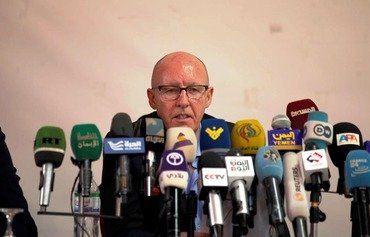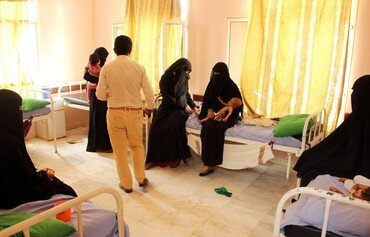Meeting the needs of the Yemeni people in 2019 will require $4 billion, the UN said last month, announcing its largest appeal for a specific country to date.
The Yemen appeal is part of the UN’s Global Humanitarian Appeal for 2019.
UN Secretary-General Antonio Guterres will host a pledging conference to raise funds for Yemen, with Sweden and Switzerland, in Geneva on February 26th.
"The country facing the biggest crisis in 2019 will be Yemen," UN Emergency Relief Co-ordinator Mark Lowcock said, announcing the appeal on December 4th.
To help address Yemen's needs, the UN is requesting $4 billion in 2019, he said, noting that 24 million in Yemen will require humanitarian assistance this year.
The latest Integrated Food Security Phase Classification (IPC) analysis gives cause for alarm, UN resident humanitarian co-ordinator in Yemen Lise Grande said in a statement.
In Yemen, "65,000 people are barely surviving right now, and at least a quarter of a million people are facing a bleak year", she said.
"Any change in their circumstances, including any disruption in their ability to access food on a regular basis, will bring them to the brink of death."
Yemen plunged into civil war in 2014 after the Iran-backed Houthis (Ansarallah) overran much of the country, including the capital Sanaa, forcing the government to move to Aden.
The war has devastated the country's infrastructure, prompting the UN to describe it as one of the worst humanitarian disasters in modern times.
Increase in hungry people
The increase in the humanitarian appeal is due to a rise in the number of people in need of food aid, said Zaid al-Alaya, Yemen public information officer for the UN Office for the Co-ordination of Humanitarian Affairs (OCHA).
"The number of people targeted for food aid provided by the World Food Programme will increase to 12 million, from eight million in 2018," he told Al-Mashareq.
"The size of the humanitarian appeal in 2018 was $2.96 billion, 78% of which, or $2.32 billion, was covered by donors and supporters," al-Alaya said.
"The funding that has been pledged for Yemen in 2018, both within the framework of the humanitarian response plan and outside it, exceeded $4 billion," said Studies and Economic Media Centre chairman Mustafa Nasr.
"That is an enormous amount, given the limited [size of the] Yemeni economy, whose general budget under normal pre-war circumstances does not exceed $11 billion," he told Al-Mashareq.
That the volume of humanitarian assistance has reached this level "underscores the extent of the international and regional attention given to the humanitarian tragedy resulting from the war in Yemen", Nasr added.
"The flow of aid funds to Yemen in this manner requires efficient management of these resources to ensure they reach their deserving recipients," he said.
War exacerbates suffering
"The state in Yemen has been toppled," journalist Mounir Talal told Al-Mashareq, adding that as a result, "the education and health sectors are experiencing a major setback".
"Teachers are not receiving salaries, and neither are government employees, and they need urgent help," he said.
The protracted war has seen "the deterioration of health, social and educational services and destruction of the infrastructure", said Nawal Abdel Rahman, a researcher at Sanaa University's Population Studies Centre.
"The slumping economy, the Yemeni riyal losing more than half of its value, the suspension of salaries for more than two years and suspension of work in the production sectors, which has left tens of thousands out of work, have relegated a million people at the very least to the ranks of the poor," she said.
"Those ranks are swelling every day," she told Al-Mashareq.
Abdel Rahman called on the UN and others to help pay the salaries of civil servants in all provinces, saying this would alleviate the humanitarian crisis more effectively than the distribution of food rations.
Food rations may or may not reach the intended beneficiaries, she explained, pointing to recent issues surrounding the distribution of food aid.
The World Food Programme (WFP) on Monday (December 31st) warned the Houthis (Ansarallah) it may stop delivering relief in areas under their control after learning that many in Sanaa have not been receiving the food rations allocated to them.
In other areas controlled by the Iran-backed Houthis, hungry people have only received part of the rations to which they are due, the WFP said after conducting a review.

![A Yemeni man picks through the rubbish for food scraps to salvage during the growing humanitarian crisis. [Nabil Abdullah al-Tamimi/Al-Mashareq]](/cnmi_am/images/2019/01/08/16020-Yemen-human-suffering-600_384.jpg)






